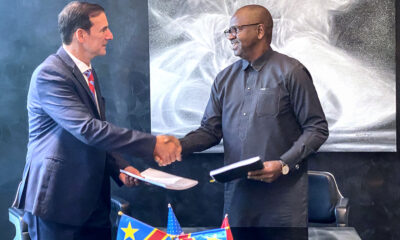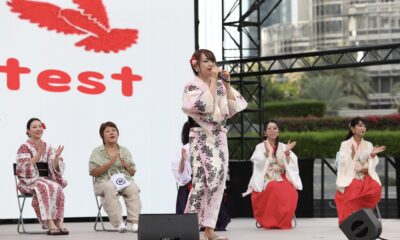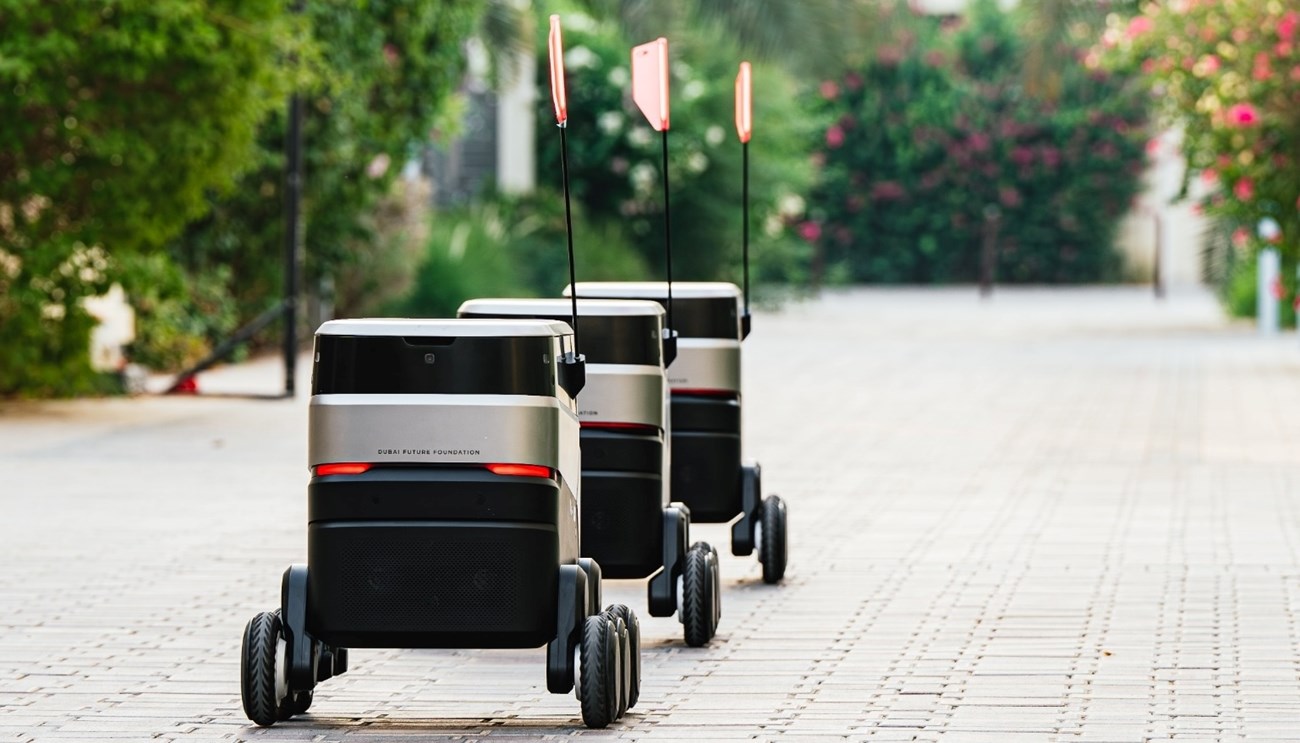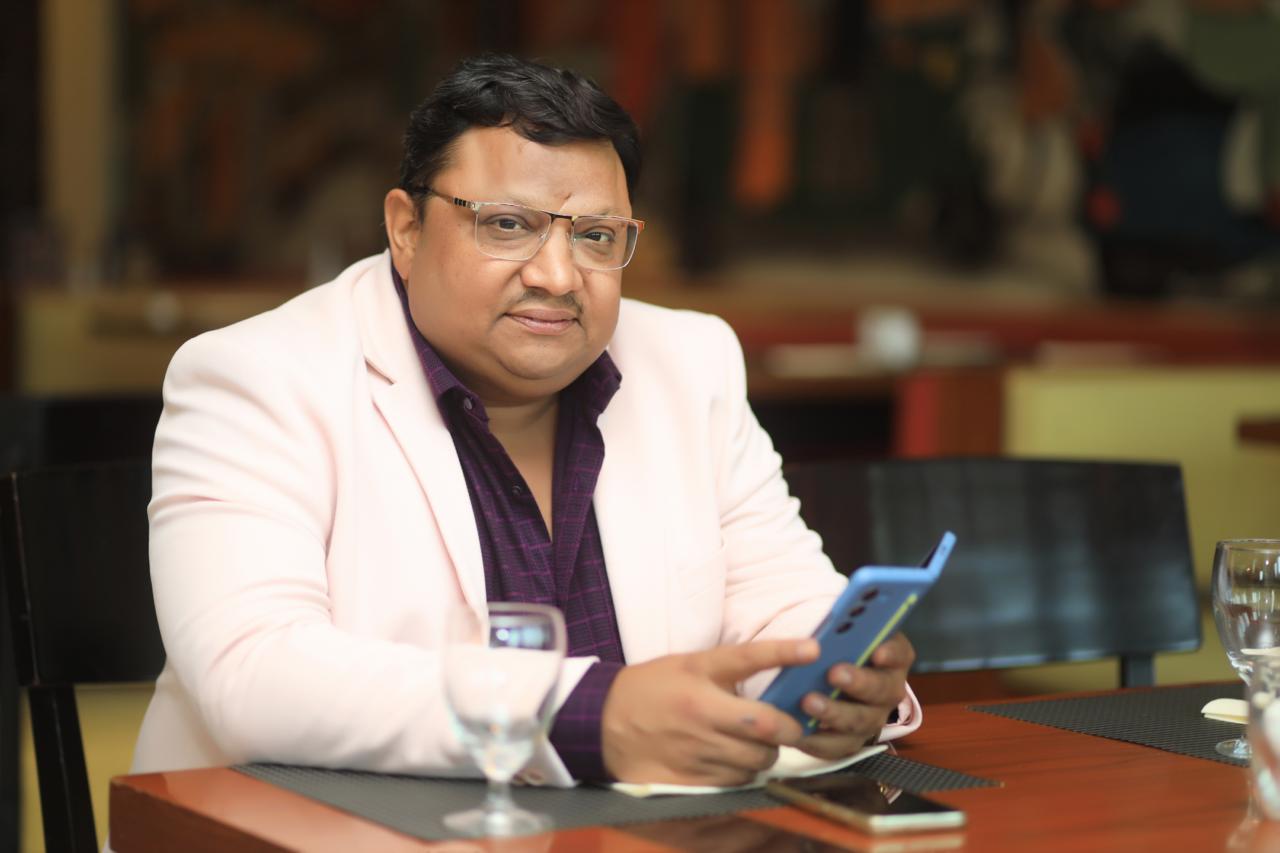The Sustainable City – Dubai, the first fully sustainable community in the region, has announced the launch of a delivery robot pilot in collaboration with Dubai Future Labs and Lyve Global. Starting this month, three autonomous on-demand delivery robots, developed by Dubai Future Labs, will begin their trial within The Sustainable City community. These robots will provide autonomous delivery services from all restaurants and shops within the plaza area to residents, utilising a smart interface powered by Lyve Global.
The unique design of The Sustainable City, which is fully pedestrianised and car-free within the residential clusters, makes the community future-ready to smoothly adopt autonomous solutions. The pilot of the last-mile delivery robots uses cutting-edge robotic technologies to enhance safety, cleanliness, and cost-efficiency while reducing traffic, carbon emissions, and waiting times.
Khalifa Al Qama, Director of Dubai Future Labs at Dubai Future Foundation, expressed that the project signifies a significant advancement in the continuous development of robotics technologies within the transportation, shipping, and logistics sectors in Dubai. This initiative underscores the city’s commitment to leveraging technology to foster innovation and improve the overall quality of life.
He added, “These innovative robots have been specifically designed to ensure swift delivery of products within a remarkable timeframe of just under 30 minutes, while being fully equipped to navigate their surroundings safely and efficiently, with the capability to identify charging stations, eliminating the requirement for human intervention.”
Al Qama added, “The introduction of these delivery robots aligns perfectly with the objectives set forth by the “Dubai Robotics and Automation Program,” which was launched by His Highness Sheikh Hamdan bin Mohammed bin Rashid Al Maktoum, Crown Prince of Dubai, Deputy Prime Minister and Minister of Defence, Chairmen of the Board of Trustees of Dubai Future Foundation in September 2022.”
Fadi Alfaris, GM of NZE Solutions at SEE Holding, said, “We have successfully created synergy between sustainable communities and advanced technologies. The Sustainable City in Dubai tests the applicability of various ideas and integrated solutions. It is an ideal location for piloting autonomous delivery robots and their future deployment. Designed with car-free residential clusters, it provides a safe and conducive environment for testing and operating such advanced technologies. This setting ensures the safety of residents and offers a controlled environment to optimize the performance and efficiency of delivery robots.”
He added, “The Sustainable City in Dubai has been meticulously designed to be future-ready, capable of adopting the latest technologies and adapting to changing requirements. Operating as a living lab, the city continuously tests the latest solutions and innovations in sustainability to spearhead a net-zero emissions future.”
Hassan Hallas, Chief Executive Officer at Lyve Global, said: “We are thrilled to collaborate with Dubai Future Labs in deploying cutting-edge delivery robots in the Sustainable City, marking a significant step forward in our mission to revolutionize logistics. This initiative underscores our commitment to innovation and sustainability. Together, we are paving the way for a smarter, more connected future in the world of logistics.”
Developed locally by a team of roboticists and engineers from Dubai Future Labs, these delivery robots boast several advanced features, including a Fleet Management System equipped with real-time tracking, a backend order fulfillment and delivery operations system devised by Lyve Global and a Secured Delivery Compartment, accessible only by the customer, ensuring secure deliveries.
These autonomous delivery robots promise rapid delivery in under 30 minutes within the community. They will navigate sidewalks safely and independently, locating charging stations when needed and eliminating the need for human intervention.
This initiative aligns with Dubai’s wider mission to make 25% of trips autonomous by 2030 and contributes to the vision of positioning Dubai as the smartest city in the world.
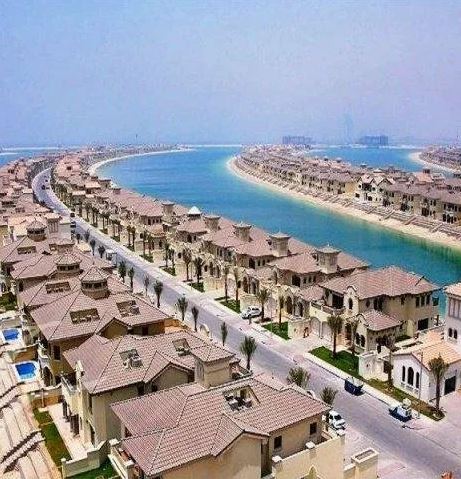

 Announcements6 months ago
Announcements6 months ago
 Announcements5 months ago
Announcements5 months ago
 Sports5 months ago
Sports5 months ago
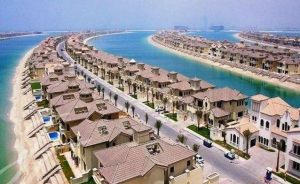 The exotic open plan living area is modern and airy with a beautiful transition to the outdoors and breath-taking sea views. Automated guillotine windows designed to create seamless indoor/outdoor living with pocket doors to privatise the living & dining space as needed.
The exotic open plan living area is modern and airy with a beautiful transition to the outdoors and breath-taking sea views. Automated guillotine windows designed to create seamless indoor/outdoor living with pocket doors to privatise the living & dining space as needed.
